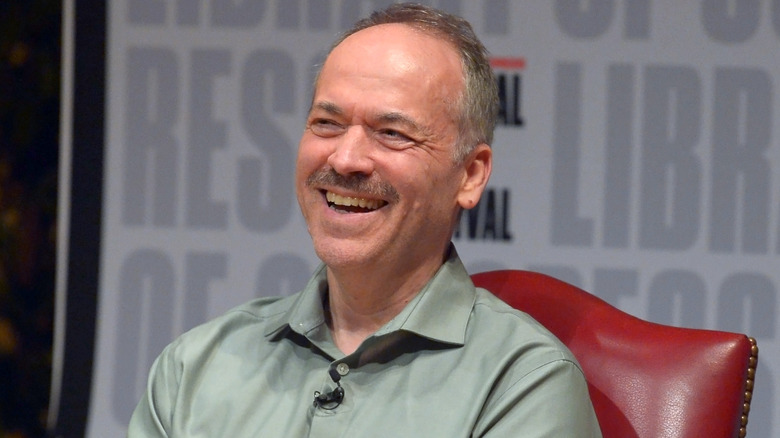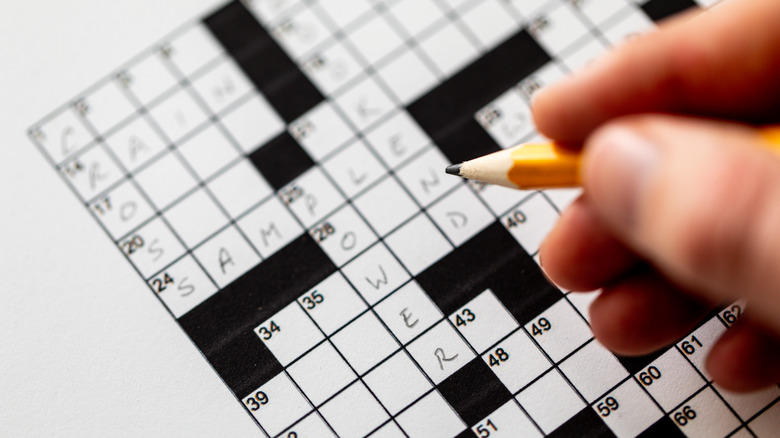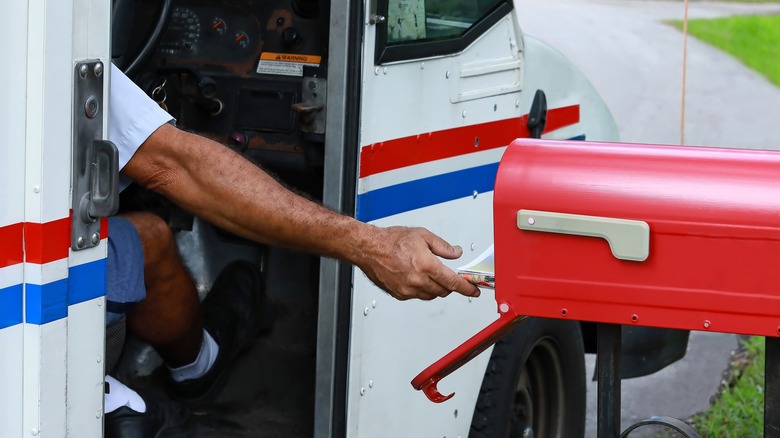Chief Cruciverbalist Will Shortz Explains How Crossword Puzzles Are Made
Many of the hobbies that people around the world enjoy have rather long words (in English anyway) to describe them. For example, someone who enjoys putting together jigsaw puzzles may not know that they're officially a "dissectologist," the preferred term for the hobby in the industry. People who collect coins and banknotes are numismatists, and stamp collectors are philatelists.
The term for a person who enjoys doing crossword puzzles is cruciverbalist, and if you're at all familiar with Latin you can see variations of the Latin root words that mean "cross" and "word" in that term. And in the United States, there is no better-known cruciverbalist than Will Shortz. Shortz is not known for being the best American completer of crossword puzzles, but the best-known American creator of crossword puzzles. That's because, for decades, he's been the crossword puzzle editor at The New York Times, according to the paper itself, whose puzzles — the Saturday puzzle in particular — are considered the gold standard when it comes to crossword puzzles in the U.S.
'Pre-Shortzian' and 'Shortzian' Cruciverbalism
The first crossword puzzle was printed in 1913, according to The Lightbox, and Will Shortz didn't become the New York Times crossword puzzle editor until 1993, 80 years later. Nevertheless, in some corners of the American cruciverbalism community, the beginning of Shortz' tenure at that job is Year Zero when it comes to crossword puzzles. Or, as The Guardian puts it, the "pre-Shortzian" and "Shortzian" eras.
By some interpretations, Shortz was born for that job. Always obsessed with trivia and puzzles, according to his website, Shortz designed his own major program at Indiana University and got his bachelor's degree in enigmatology – the study of puzzles. However, he then took a brief detour and went to law school, and then immediately after graduating, set about to writing puzzles, a decade or so after he sold his first puzzle to a magazine at the age of 14.
Shortz would go on to be the senior editor at Games Magazine for 15 years, founded the American Crossword Puzzle Tournament, the World Puzzle Championship, and cofounded the World Puzzle Federation in 1999. In addition to his New York Times puzzle gig, he's also written, edited, or been a contributor to over 500 crossword puzzle books.
The Nitty-Gritty of Crossword Puzzle Creation
So how does Will Shortz actually make crossword puzzles? By crowdsourcing much of it, actually. "I get 75 to 100 submissions a week," he said in 2012, via this YouTube video. He then fact-checks them for accuracy. The video of his office showed shelves full of books, including encyclopedias and almanacs and such. He and his team then send the clues to testers, according to The Guardian. About half of the clues in any one puzzle are crowdsourced, the other half composed by Shortz and his team.
Perhaps surprisingly, producing crossword puzzles can be fraught, says Shortz, who notes that he's received tons of hate mail over the years. Some of it has been about ambiguous clues, while other letters have split hairs over the most minute of problems. One writer complained about a clue that suggested toads hop, when in fact frogs hop, toads waddle. He's also, at least once, inadvertently used a word that is also a racial slur.
Further still, language and culture are constantly changing. For example, at one time the letters ALS referred to Amyotrophic Lateral Sclerosis, which was a hot topic of conversation for a few months a decade or so ago when the Ice Bucket Challenge was big. Those days are long gone, and now when he needs a clue that uses those three letters in that order, he uses something like "Vice-President Gore and others." Als, get it?


